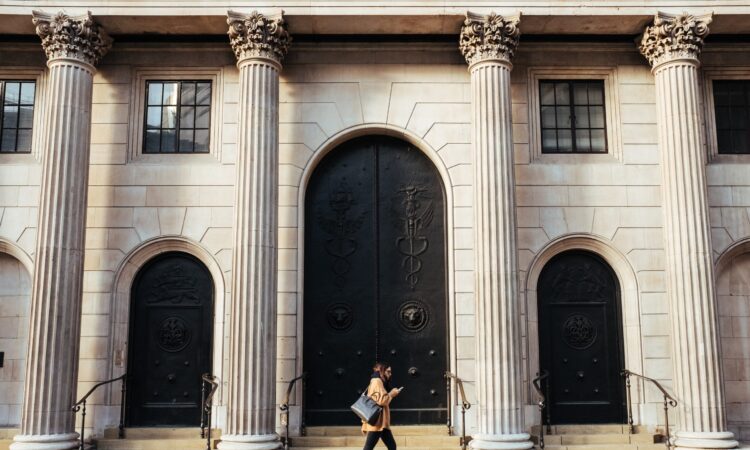
The phenomenon of debanking is difficult to justify at the best of times, but debanking charities? One wonders what the state of UK banking has come to.
The assumption that being ‘debanked’ results from the consistent violation of financial regulations seems logical, but the reality appears to be applied far too flippantly.
Both in the UK and around the globe, individuals and groups are finding themselves unexpectedly cut off from their bank accounts, with reasons appearing to range from affiliations with particular groups to expressing anti-woke sentiments to there being no reason given at all.
In essence, there seems to be a worrying lack of coherence in the practice. But while this lack of rhyme or reason is concerning, TechRound has recently delved into what may be the most perplexing debanking trend of all: the targeting of charities.
TechRound’s Founder and Editor-in-Chief discussed this recently on GB News – see below.
The Latest Chapter in The Debanking Debacle
“The latest now is that charities are being debanked” stated David Soffer, Founder and Editor-in-Chief at TechRound, recently on GB News with Nigel Farage.
“On TechRound, we received a message from a charity who said that over a thousand other charities depend on them, so, therefore, thousands of people are depending on them for hot meals this Christmas alone.”
“They’ve seen around £1m of donations blocked for a technicality at best and something unbeknownst to them at worst.”
Something “unbeknownst” seems to hit the mark, especially when looking at previous evidence of debanking. Indeed, the very nature of this practice is murky, with banks and other financial institutions operating in grey zones of regulations, conditions and, as alluded to by David Soffer, technicalities, that justify people ripe for the picking to cut off from their accounts.
Much like other debanked groups or individuals, this charity, currently unnamed, experienced being cut off from their donations for reasons unexplained. This is a common theme in the debanking practice. As experienced by Mr Farage on GB News in July: “Coutts had closed my business and my personal accounts and had not given any reason whatsoever.”
Mr Farage further disclosed that following his rejection by Coutts, a staggering ten additional banks declined his request to open an account with a similar lack of explanations.
The common disconcerting aspect of this process is the lack of forewarning, leaving individuals unprepared for the subsequent actions, and minimal to no explanation or support provided afterwards.
But Mr Farage’s experience highlights perhaps an even more troubling trend, that is when banks seem to adopt a bandwagon attitude of moving within a hard mentality. If one bank shuts you off, you can probably expect others to soon follow suit.
In response to the Financial Conduct Authority, which launched an investigation looking at the 12 months leading up to June 2023. on the matter, Mr Farage stated on X, formerly known as Twitter: “The FCA says it finds no evidence of politicians being ‘de-banked’ over political views. This new report is a whitewash and a joke”.
Additionally, the watchdog said that wider concerns about financial crime and dormant accounts were the main reasons for closures. Yet, somehow, this explanation feels inadequate to explain why over a million adults in the UK have been denied a bank account.
And, now, the latest victim is a charity rearing to supply hot meals over the festive season? Though possible, it doesn’t seem the likeliest candidate for committing financial crimes or being left dormant.
So, what does this all mean for the landscape of UK banking?
The Ripple Effect
The Financial Conduct Authority is meant to regulate financial services, firms and financial markets in the UK, by its own description. But in recent years, it seems to be ignoring the widespread evidence of prejudice and misconduct in our financial institutions.
Where has this watchdog been when individuals, groups, and charities faced financial isolation? In a time where robust regulation is more critical than ever for safety and stability, shouldn’t there be a louder call for their involvement?
The recent debanking incident should serve as a clear call to action for involvement from both the FCA and the government.
After all, while most individuals have dependents who rely on their income for support, charities often bear the responsibility for thousands, if not millions, of dependents. Upon reaching out to TechRound, the recently targeted charity claimed that thousands of dependents would be relying on it for hot meals this Christmas.
It’s a worrying thought, and the concern extends beyond charities to businesses in general. Every business requires financial access to operate. Without this, what could happen to the employees of that business? Startups, in particular, heavily depend on support from investors, and without this vital lifeline, their chances of survival diminish significantly.
This concern demonstrates how, as one starts to unravel the thread, the far-reaching implications of debanking become apparent and paint a rather grim picture of Britain’s business ecosystem.
As put by David Soffer, when it comes to the implications of debanking: “You’re looking at a lot more people being affected by this than anyone would have ever expected.”
The encounter with this charity underscores the urgent need for transformative change in the UK’s financial systems. One can only take a hopeful expectation that, moving forward, the FCA, government, and financial institutions will take proactive measures to establish a fair and unbiased system.





